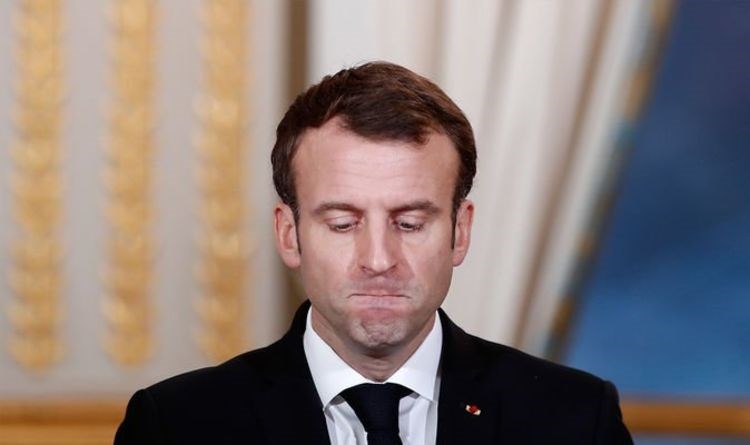Macron allies seek to salvage power after ‘Jupiter lost his thunder’
French President Emmanuel Macron faces the prospect of having to seek backing from parliamentary rivals in order to protect his plans.
-

Macron allies seek to salvage power after ‘Jupiter lost his thunder’
French President Emmanuel Macron and his allies were scrambling Monday for a way out of a political impasse after losing their parliamentary majority in a surprise defeat for the president and his reform proposals.
Macron's Ensemble (Together) coalition won the most seats in Sunday's National Assembly poll but fell dozens of seats short of retaining the parliamentary majority it had had for the previous five years.
Surges on the left and far-right undermined Macron's deputies, who had consistently supported the president's policies over the previous five years. Turnout was low, with the abstention rate recorded at 53.77%.
'A slap'
The result was seen as a "slap in the face" for Macron by the left-leaning Liberation daily, while the conservative Le Figaro claimed he was now "fronted with an ungovernable France."
Macron's backers may now seek a majority by creating alliances with other right-wing parties, causing turbulence in French politics not seen in decades.
Read next: Macron to lose parliamentary majority in blow for "reform" plans
According to the Interior Ministry, the new left-wing alliance NUPES gained 131 seats in the election to become the major opposition group.
However, it is questionable whether the combination of Socialists, Communists, Greens, and France Unbowed will remain a unified bloc in the National Assembly.
Far-right Le Pen
Meanwhile, Marine Le Pen's far-right party had its best parliamentary result in history, becoming the strongest single opposition party with 89 seats, up from eight in the previous chamber.
A confident Le Pen stated that her party would demand to chair the important finance commission of the National Assembly, as is customary for the largest opposition party.
"The country is not ungovernable, but it's not going to be governed the way Emmanuel Macron wanted," Le Pen told reporters Monday.
Far-left Melenchon
Far-left The NUPES alliance's leader, Jean-Luc Melenchon, said he would launch a resolution of no confidence against Macron's Prime Minister Elisabeth Borne as soon as Parliament reconvenes in July.
Borne, who was elected to Parliament in her maiden political contest, was considered as vulnerable as Macron confronts a new cabinet shake-up following the loss of several of his senior friends.
Read next: Melenchon hails Macron's failure in elections
His health and environment ministers lost their seats and will have to quit by convention, as did the house speaker and the head of Macron's parliament group.
"We will see in the coming hours, but for now the prime minister remains the prime minister," government spokeswoman Olivia Gregoire told France Inter radio Monday. "My fear is that the country is paralyzed," she added.
'Turning point'
The outcome tainted Macron's April presidential election triumph, in which he defeated Le Pen and became the first French President to win a second term in almost two decades.
"It's a turning point for his image of invincibility," said Bruno Cautres, a researcher at the Centre for Political Research of Sciences Po.
Macron's choices, which he has yet to publicly comment on, include forming a new coalition alliance, passing legislation based on ad hoc agreements, and even calling new elections.
His coalition garnered 245 seats, falling far short of the 288 required for an overall majority. "The route of the presidential party is total," Melenchon told supporters.
Alexis Corbiere, a key MP from Melenchon's party, said Macron's plan to raise the French retirement age to 65 was now "sunk".
Macron had wanted to mark his second term with an ambitious tax-cutting, welfare-reform, and retirement-age increase agenda. All of that is now in doubt.
"It will be much more difficult to govern," said Dominique Rousseau, professor of law at Paris Pantheon-Sorbonne University.
Moreover, as the president attempts to reach out to new parties, there might be weeks of political gridlock. The most likely alternative would be an alliance with the Republicans, France's historic right-wing party with 61 MPs.

 4 Min Read
4 Min Read










